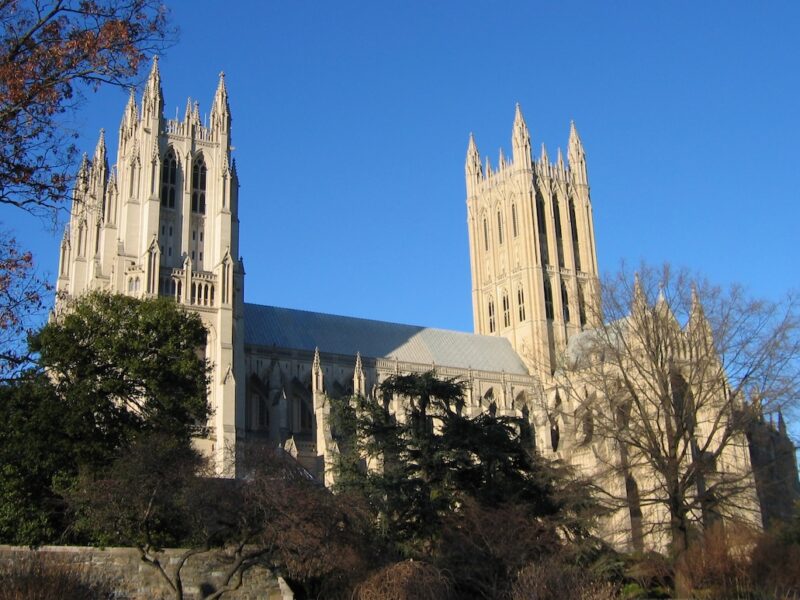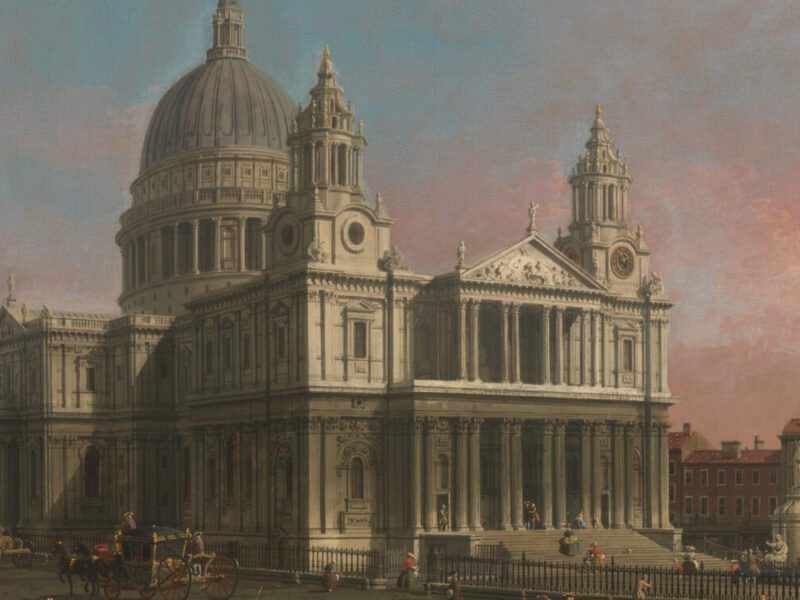Thursday morning the Anglican Church in North America (ACNA) published a press release announcing that Archbishop Foley Beach, the ACNA Primate, and Archbishop Nicholas Okoh, the primate of the Church of Nigeria (Anglican Communion), had signed an agreement clarifying the status of the dioceses of the Convocation of Anglicans in North America (CANA) with respect to the two Provinces. This was followed by an episode of Anglican Unscripted hyperbolically titled “CANA Divorce.” The agreement clarified CANA’s status as a missionary district of the Church of Nigeria. The CANA dioceses and bishops would have the choice of remaining under the canonical authority of Nigeria or transferring solely into ACNA. Those who remained in the Church of Nigeria would likely become ministry partners with ACNA instead of dioceses. Previously, the CANA dioceses had something of a “dual-citizenship” status between the two Provinces, though there remains widespread confusion over the exact nature of that status.
What follows are my reflections on the newly articulated status of CANA as a priest who is canonically resident in CANA’s Anglican Diocese of the West (previously known as CANA West). The following thoughts and reflections are my own and do not necessarily reflect the views of my bishop or diocese.
I transferred into CANA in 2014 when I accepted a call to be the assistant rector at All Saints Anglican Church, the parish in which I currently serve as rector. Even before I came into CANA, my understanding was that CANA was primarily a jurisdiction of Nigeria, and secondarily a jurisdiction of ACNA. In fact, a couple years ago, all CANA clergy, myself included, registered with the Church of Nigeria and received numbers within Nigeria’s clergy database. Our connection to the official Anglican Communion through Nigeria was often emphasized. When controversies would arise within ACNA, the stability of our membership in the Church of Nigeria was a source of reassurance and comfort. I considered myself both a priest within ACNA and a priest within the Church of Nigeria, but with the understanding that Nigeria had canonical priority, based on my letter of canonical residence and my registration with Nigeria.
I am aware, of course, that this understanding has not been universal among CANA parishes and clergy.
This sort of “dual citizenship” status was not uncommon in the early days of ACNA. Eventually most of the African Provinces released their North American missions fully into ACNA. This was never the case with CANA, however. Many of us were aware that this would eventually lead to some sort of tension, as different canons, policies, and protocols would eventually come into conflict. Simultaneous membership in two Provinces is simply untenable, even as it would be untenable for a parish to be a member of two dioceses under two Bishops Ordinary. And we knew that the tension would likely manifest when new CANA bishops were to be elected. This was proven to be true in early 2019 when the Church of Nigeria elected four suffragan bishops for CANA’s Anglican Diocese of the Trinity.
Public statements by my bishop have made it clear that the Diocese of the West will remain in CANA and therefore remain in the Church of Nigeria. While I will miss some aspects of being a priest in ACNA, I am convinced this decision by my bishop on behalf of my diocese was the right one for us.
Why I will Miss being in ACNA
The most difficult aspect of no longer being a priest in ACNA will be the inevitable cooling of some relationships. While we will still be brother priests in GAFCON and in the Anglican tradition, there will be more institutional separation from some of my clergy friends than before. Nevertheless, as ministry partners, we should (and will) continue to work together in mission in some way. Unfortunately, my local city will no longer have an ACNA presence, though there will still be numerous Anglican churches! I sincerely hope any ACNA diocese that decides to plant in our area will work with the existing local structures, as we have worked hard to strengthen them over the past few years.
Additionally, it has been very convenient to be able to play both sides of the “dual citizenship.” Frankly, there were times it was in my interest to emphasize my status as a priest in the ACNA, and there were other times it was in my interest to emphasize my status as a priest in the Church of Nigeria. Nevertheless, I recognize that such a situation was always far from ideal, even as I admit that it is not ideal for two GAFCON provinces to be active in a single geographic area.
Why I am Glad to Remain in the Church of Nigeria
All that said, I am convinced remaining in the Church of Nigeria is the best option for us. Though the power structures in the Anglican Communion are against the orthodox provinces and bishops, Nigeria is the largest province in the Communion and the strongest province in GAFCON. The sheer numbers in the GAFCON provinces who are recognized by all of the “Instruments of Communion” mean that the Anglican Communion is not a lost cause. Being a priest in the Church of Nigeria gives me skin in the game.
Nigeria’s size and strength also provides stability in an ever-shifting Anglican world. Unfortunately, there are some serious theological and ecclesiological issues that ACNA is unwilling or unable to resolve. In general, these are non-issues for Nigeria. For example, the controversy of women’s ordination may be the proverbial elephant-in-the-room for ACNA, but it is not even on the table for the Church of Nigeria.
Furthermore, there has been a tendency in much of the Anglican world in North America to change dioceses and jurisdictions rather often. Affinity dioceses dominate the ACNA landscape. Indeed, CANA could rightly have been classified in those terms! In the decision to remain with Nigeria, however, I see stability and loyalty on the part of my bishop and diocese. This is something that I need. It has rightly been pointed out that the Book of Common Prayer brought a certain sense of Benedictine spirituality to us regular folks. The Benedictine vow of stability prevented monks from jumping from one monastery to another. The decision to remain in the Church of Nigeria strikes me as properly Benedictine. Again, I recognize that not all in CANA would see it from this perspective, and indeed some may see membership in ACNA as being their duty for similar reasons.
Finally, there are some groups of Anglicans, to whom my parish has some ancestral ties (albeit far before my time), that are hesitant to work closely with ACNA because of the afore-mentioned theological and ecclesiological issues. The status of CANA as ministry partners rather than dioceses within the ACNA may open doors for CANA to act as something of a bridge within orthodox Anglicanism across jurisdictions.
All Mission is Local
The truth is, very little will change at the local parish level. In my city we have a strong archdeaconry of CANA parishes that work very well together. None of us are large. None of us are wealthy. None of us take ourselves too seriously. We also have been working toward establishing relationships with the local Anglican Churches that are not a part of CANA. We hope to do the same with any ACNA ministries that are established here in the future. It is at this level that we preach the Gospel, administer the Sacraments, and call sinners to repentance. As a brother priest often reminds me, all mission is local. And contrary to some of the statements floating around the Internet, our mission is not narrowly focused on reaching Nigerians who have immigrated to our city. In fact, Nigerians are a small minority of our parishioners. No, we are here to reach whoever is in our neighborhoods, whoever is in our city, whoever needs the Gospel. I find that to be encouraging, even when the institutional structures are shaken. I am convinced that when we keep our eyes on the Gospel, we can indeed work together for mission, in spite of the messiness of the Anglican world.





'Reflections from a CANA Priest' have 4 comments
May 4, 2019 @ 12:37 am Greg
Father Rehberg, many thanks for your article which brings much clarity to the situation with CANA and the ACNA and the Church of Nigeria.
Drawing on your knowledge and experience as a priest within CANA, do you think that CANA’s Diocese of the East will follow the same path as the Anglican Diocese of the West and the Anglican Diocese of the Trinity and remain within CANA and the Church of Nigeria (Anglican Communion)?
Your point about CANA’s ( and the wider Church of Nigeria’s) position on women’s ordination is very pertinent when it comes to reaching out to the various Continuing Anglican jurisdictions in the USA and Canada. A denomination like the United Episcopal Church in North America, which has similar liturgical and theological characteristics as CANA’s, springs to mind. By joining CANA the UECNA, (and other similar jurisdictions), would gain membership in the global Anglican Communion, but would still be able to continue with their theological beliefs and liturgical practices intact, safe in the knowledge that they would be maintained in their new ecclesial home as a missionary outreach of the Church of Nigeria.
Thanks again for your insights.
May 4, 2019 @ 1:12 pm Fr. Isaac J. Rehberg
Thank you for your kind words. My understanding from some clergy friends in CANA East is that they will be discussing and voting on the issue at their synod later this month. I couldn’t presume to even guess which way that is likely to go. I’m not sure of its official status at this point, but back in 2005, Nigeria signed a “Covenant Union” with the REC and the APA. This union wasn’t quite full intercommunion, but it had some very strong pledges for working together. Again, I don’t know what it’s official status is, and it was way before my time. But it does set precedence for what kind of things could happen between CANA and other jurisdictions.
May 4, 2019 @ 4:06 pm Greg
Thanks again Fr and prayerful best wishes for your ministry.
May 6, 2019 @ 1:19 pm Current (Anglican/GAFCON) Events Links – All Saints Anglican Church
[…] My reflections for the North American Anglican on said CANA events […]